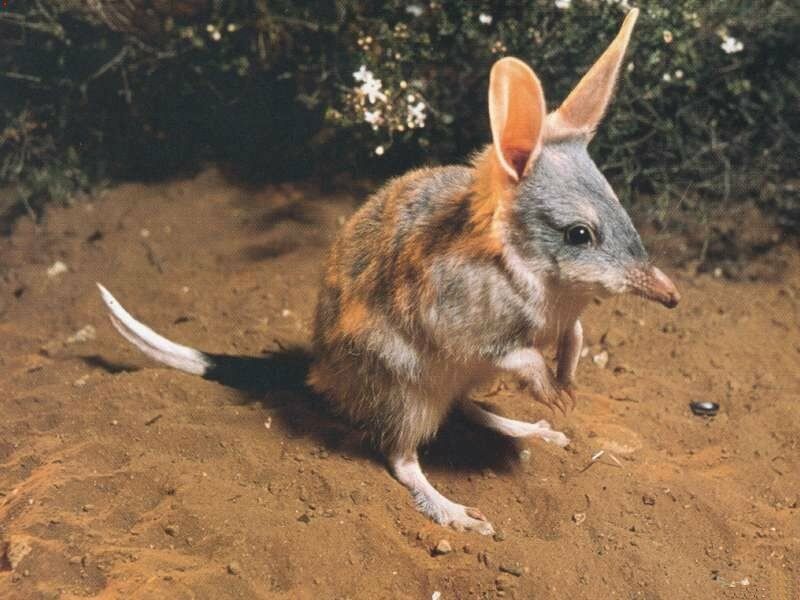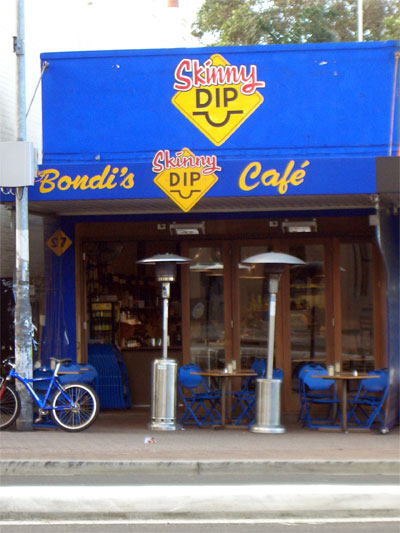Last weekend I had the chance to renew my friendship with Sam from Sydney.
She’s the communications manager for the New South Wales Food Authority (the state where Sydney is located in Australia), She booked an inexpensive room for me and Chapman and his only girlfriend one ANZAC day back in 2002.
This is our respective gangs last weekend at Bondi Beach in Sydney (right, exactly as shown; I .jpg) wore shorts, the others were ridiculous). Amy now gets it when I say, Bondi is awesome.
wore shorts, the others were ridiculous). Amy now gets it when I say, Bondi is awesome.
A short boat ride north of Bondi is Manley beach, which has been plagued with Salmonella in the sand for years.
In May, 2008, children’s playgrounds were closed on Sydney’s Northern Beaches after a rare form of salmonella, paratyphi B var java, normally linked to tropical fish, sickened 23 toddlers. The sand was replaced at a cost of $140,000 but subsequent testing showed the same Salmonella had returned.
Over three years later, and once again, part of the popular children’s playground at Winnererremy Bay was closed after testing revealed the presence of Salmonella bacteria in the surface bark.
Three children were taken to hospital with severe diarrhea, vomiting and stomach pain during the gastro outbreak on the northern beaches between 2007 and 2009. A further 72 people, mostly young children, became ill.
Health types reported today the cause was long-nosed bandicoots pooing in the sandpits.
At the time, health authorities could not determine the source of the salmonella. There were theories it came from dirty nappies, cockroaches or the feces of rats, ducks and ibis.
In a paper published last month in the U.S. Centers for Disease Control’s journal Emerging Infectious Diseases, investigators from NSW Health said children ate the sand carrying the bacteria.  The bacterium has been traditionally associated with imported ornamental fish.
The bacterium has been traditionally associated with imported ornamental fish.
The investigators found that one central depot that delivers sand to playgrounds was a ”common factor” in all contaminated playgrounds and that the depot was situated in a ”wild bushland setting.’
Most places in Australia are a wild bushland setting.
During tests of fecal and cloacal samples from 261 animals, the investigators found the salmonella strain in ducks, rats, possums and a dog, but by far ”the most were from a marsupial species native to the local area, the long-nosed bandicoot”, the paper said.
”Although sand from the central depot was a common factor in all contaminated playgrounds where case-patients contracted the illness, the infection source for this facility remains unknown,” the paper said. ”It was located in a wild bushland setting, and it is feasible that transmission of the bacterium from local wildlife occurred.”
The authors wrote that their study identified accidental sand ingestion as a ”previously unrecognised pathway for humans acquiring illness caused by S. enterica var. Java.”

 various offences relating to the sale of unpasteurised milk and unpasteurised dairy products.
various offences relating to the sale of unpasteurised milk and unpasteurised dairy products..jpg) Authority’s stringent food safety management programs, which includes pasteurisation."
Authority’s stringent food safety management programs, which includes pasteurisation." The Australians were slow to adapt restaurant inspection disclosure
The Australians were slow to adapt restaurant inspection disclosure